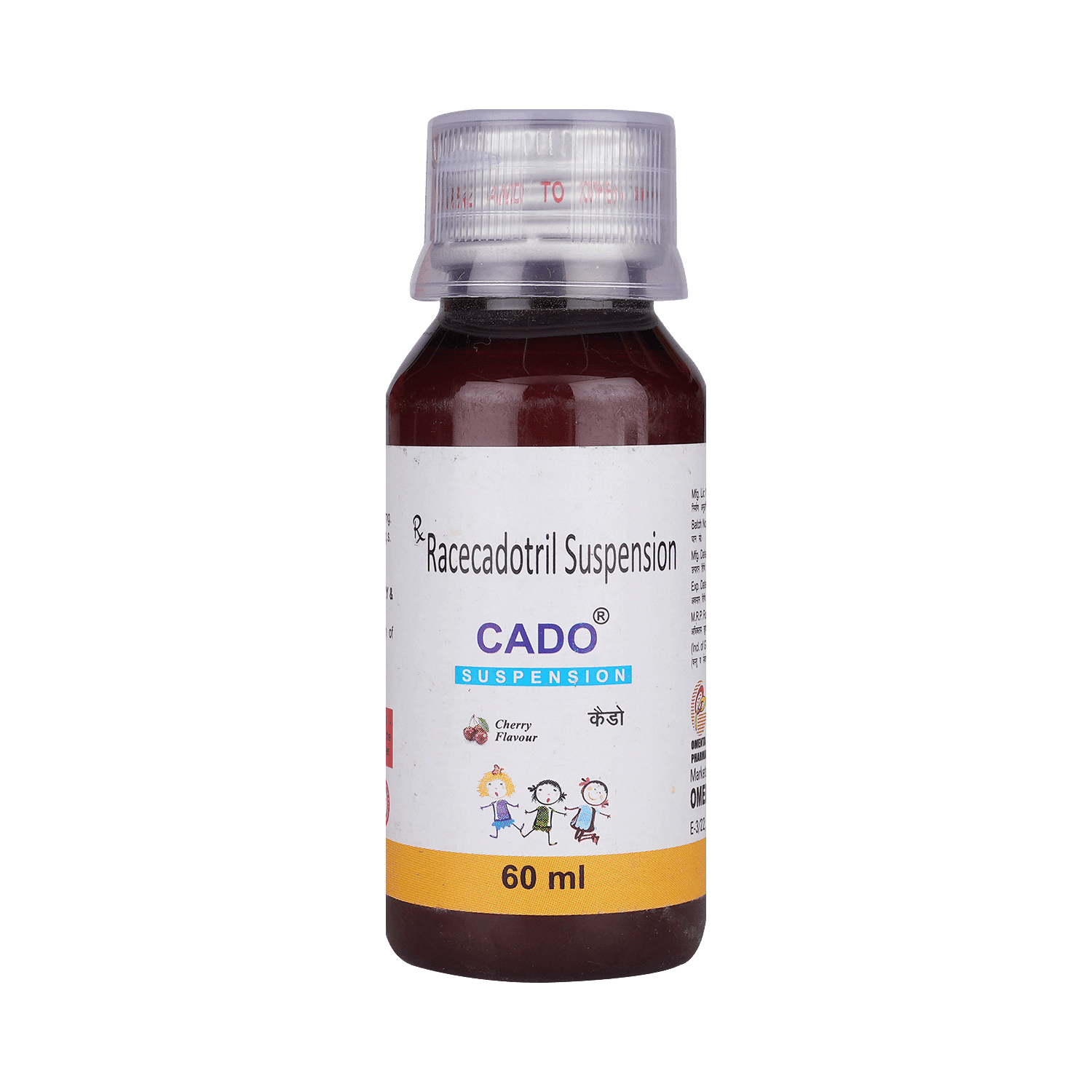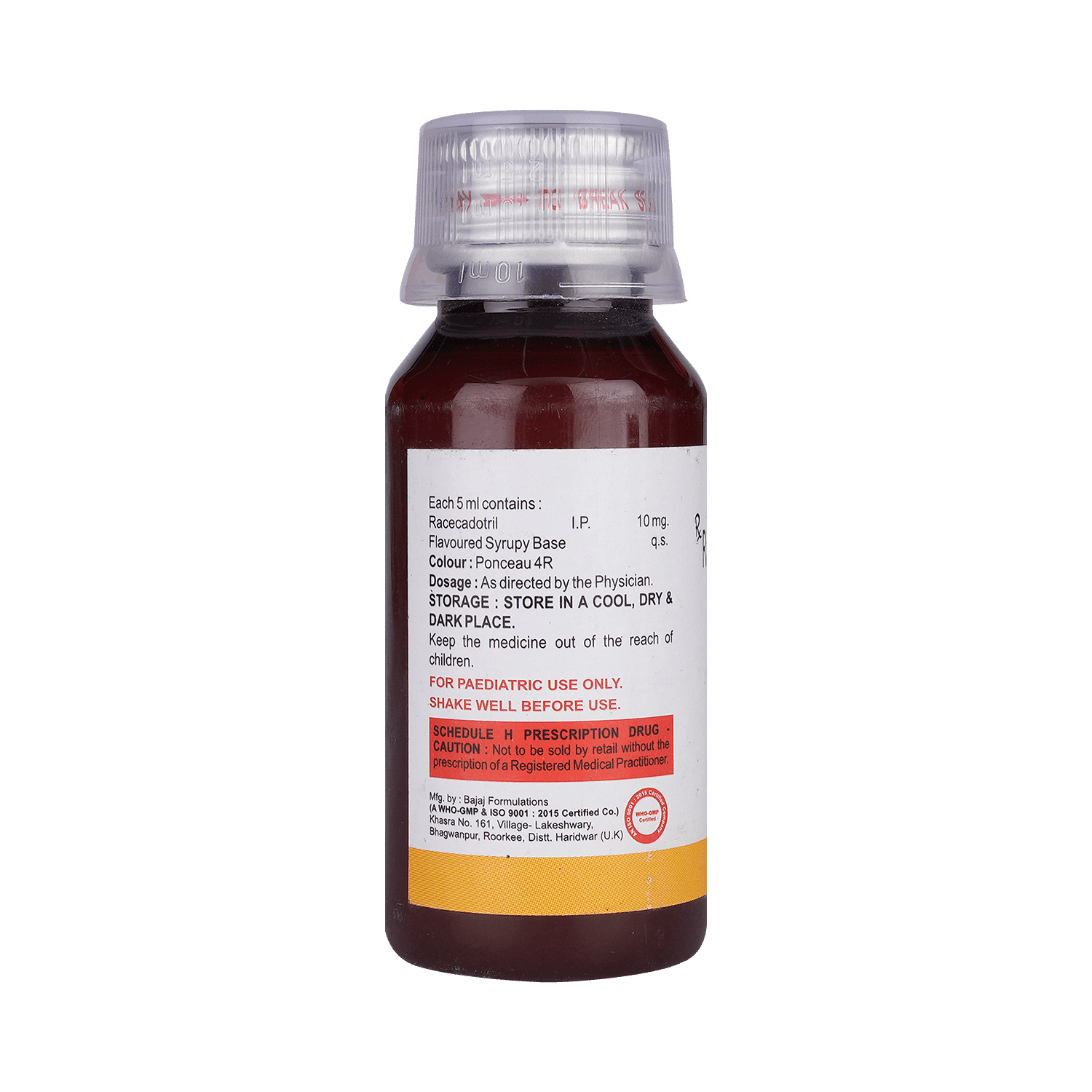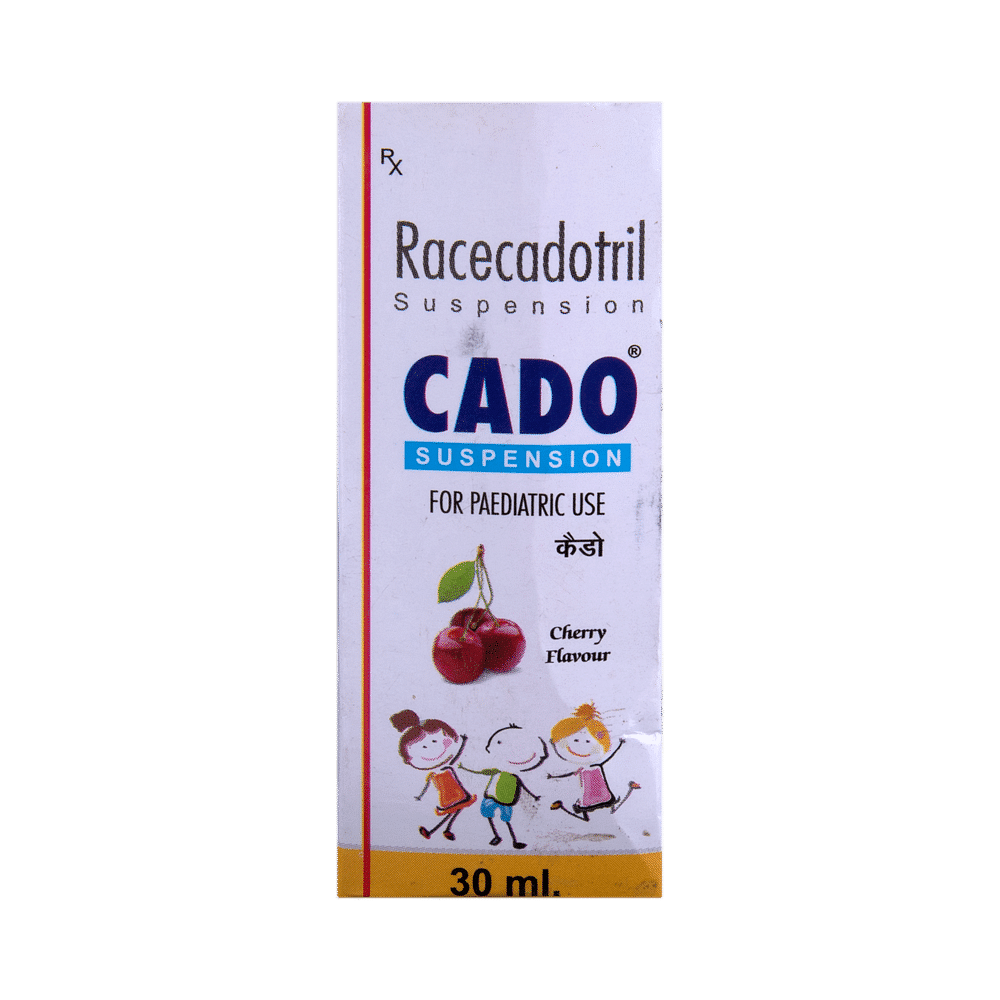


Cado Suspension
Manufacturer
Omenta Pharma Pvt Ltd
Salt Composition
Racecadotril (10mg/5ml)
Key Information
Short Description
Cado Suspension is a medicine used to treat acute diarrhea in infants and children, reducing the amount of water and salts lost in stools.
Dosage Form
Suspension
Introduction
Cado Suspension is a commonly prescribed medicine for the symptomatic treatment of acute diarrhea in infants and children. This medicine is usually given when diarrhea cannot be treated effectively with fluids and dietary measures. It reduces the amount of water and salts that are lost in the stools.
Directions for Use
Cado Suspension should be used together with an oral rehydration solution (ORS) to provide adequate fluid and electrolyte replacement.
Safety Information
Side Effects
No common side effects listed.
How it works
Cado Suspension has an anti-secretory effect. It reduces the secretion of water and electrolytes from the intestine. This helps to replenish the amount of fluids lost from the body in diarrhea.
Quick Tips
Cado Suspension should be used together with an oral rehydration solution (ORS) to provide adequate fluid and electrolyte replacement. Give your child plenty of fluids to replenish water and mineral loss. Do not use Cado Suspension if your child has blood and pus in the stools or fever. Cado Suspension is not recommended to be taken more than 7 days unless advised otherwise. Do not mix Cado Suspension along with any other herbal or ayurvedic medicine as it can harm. Do not give Cado Suspension if your child has persistent uncontrolled vomiting as this medicine will not be absorbed. Do not give Cado Suspension if your child is less than 3 months of age.
Related Medicines
Frequently asked questions
Does Cado Suspension reduce stool output?
Yes, it helps to reduce stool output.
How long does Cado Suspension take to work?
Treatment with Cado Suspension should be continued until two normal stools are passed. However, if the diarrhea does not get better after seven days of treatment you must talk to the doctor. Make sure neither to extend nor to stop the treatment by yourself without consulting your child’s doctor. Doing so may have side effects or may lead to a recurrence of symptoms.
My child is one year old and has a neurological disorder. Is it safe to give Cado Suspension?
Usually, Cado Suspension does not enter the central nervous system and lacks the potential to cause serious side effects such as neurotoxicity. However, since children below the age of 2 have underdeveloped membranes, there could be a chance of the medicine entering the brain and causing side effects. Therefore, consult your child’s doctor before giving Cado Suspension in such a condition.
My child has milk intolerance. Can I give Cado Suspension to my child?
No, children with intolerance to dairy products and milk are advised not to take this medicine as it contains lactose.
My child is passing watery stools mixed with blood and is also suffering from fever. Is Cado Suspension the right choice of treatment?
No, do not give Cado Suspension if your child is passing stools mixed with blood or pus along with having a high body temperature (fever). These symptoms are indicative of some underlying pathology (infection) and may require some other line of treatment.
My child is suffering from long-term (chronic) diarrhea. Can I give Cado Suspension?
The use of Cado Suspension in chronic diarrhea has not been sufficiently studied. Therefore, it is best to consult your child’s doctor before giving this medicine to your child for long-term diarrhea.
What all other medicines should my child avoid while taking Cado Suspension?
Although Cado Suspension is not known to cause any interaction with other medicines, you should inform the doctor if your child is taking any medicine. It is best to narrate the complete medical history of your child as this will help the doctor understand your child’s needs better.




